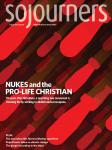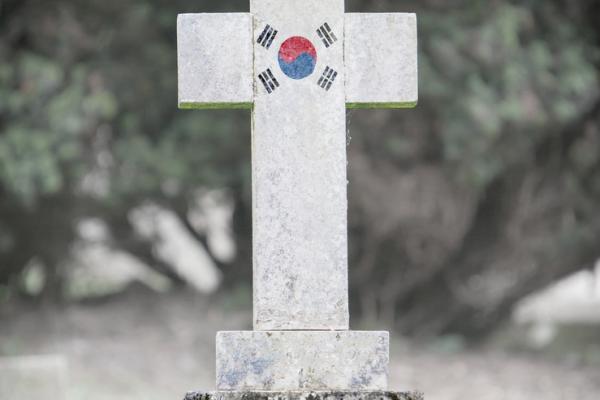IN 1900, 1 percent of Korea’s population was Christian. By 2010, roughly 3 in 10 South Koreans were Christian, including members of the world’s largest Pentecostal church, Yoido Full Gospel Church, in Seoul. The faith has exploded, and so now have the questions.
Each of the past several summers in Washington, D.C., I’ve met with 50 young Christian leaders from South Korea to discuss biblical social justice as it applies to their Korean context and perspectives on our shared Christian faith. They highlighted challenges they face, such as confusing financial and church growth with God’s favor; the stress that youth face in their ambition for a viable career; and the roles sometimes assigned to women and men in both church and society.
They also posed a critical question: Do you think of yourself as a Christian first or an American first? Out of our deep exploration came three convictions: First, national identity can be a deep blessing, but it cannot be our primary identity. Second, discussion works best without immediately judging our priority lists or our neighbors’ lists harshly. Third, the order of our lists should never be the cause of harm.
These rich dialogues with Korean faith leaders set the stage for an unusual opportunity: attending the Global Forum for the Future of World Christianity held on Jeju, the politically contested island off the coast of South Korea. First organized in 2012 by a group of Korean pastors, theologians, and activists, the Jeju Forum is making a decisive move toward leading a new ecumenical movement in service to the broader global church. The founding churches include Myungsung Presbyterian Church, the largest Presbyterian church in the world, and Yoido Full Gospel Church, affiliated with the Assemblies of God.
More than 100 Christian leaders assembled in Jeju to accomplish three things: determine how best Korean Christians could serve the global Christian communion; gather Christian leaders from Russian Orthodox, Roman Catholic, and Southern Hemisphere Pentecostal churches, as well as the World Evangelical Alliance and the World Council of Churches, for conversation and problem-solving; and share ways that the gospel calls us to attend to those denied justice and discuss how best to share the good news of Matthew 25.
Jeju island itself is the center of a call for justice because it is a linchpin in the so-called “rebalancing” plans of the U.S. and South Korean governments for pushing back against expansion by China. Since 2011, Jeju has been not only the construction site for a $970 million naval base but also the scene of massive civil society protests against it, including by many religious leaders. While this was not the focus of the Jeju Forum, there were opportunities to discuss the issue with the Jeju governor and other Christians from the island.
South Korean Christians are in the midst of their own complicated conversations and battles about church-state relations in a country that has a significant Christian population—but one that’s declining among young people. However, church leaders such as Yoido’s senior pastor Young Hoon Lee, Myungsung’s founding pastor Kim Sam-Whan, and his son Hana Kim represent the past and the future in their work to balance churchgoers’ interest in Korean reunification and issues of women’s leadership, as well as more difficult topics such as LGBTQ rights. The young leaders are hungry for a social justice movement in their Korean churches. Sojourners’ president Jim Wallis—who has had six of his books translated into Korean—spoke to more than 10,000 people at Myungsung Presbyterian Church and delivered the keynote address at the Jeju Forum this year, bringing encouragement to those seeking a biblical social justice perspective for Korea.
As Korean Christians become financial and political power-brokers themselves, they must ask, “Do we think of ourselves as Koreans first or Christians?” American Christians remain very much in need of the Koreans’ zeal for getting this right and influencing us to follow them in such a conversation. The Jeju Forum is one way they are answering: We are global Christians first.

Got something to say about what you're reading? We value your feedback!

